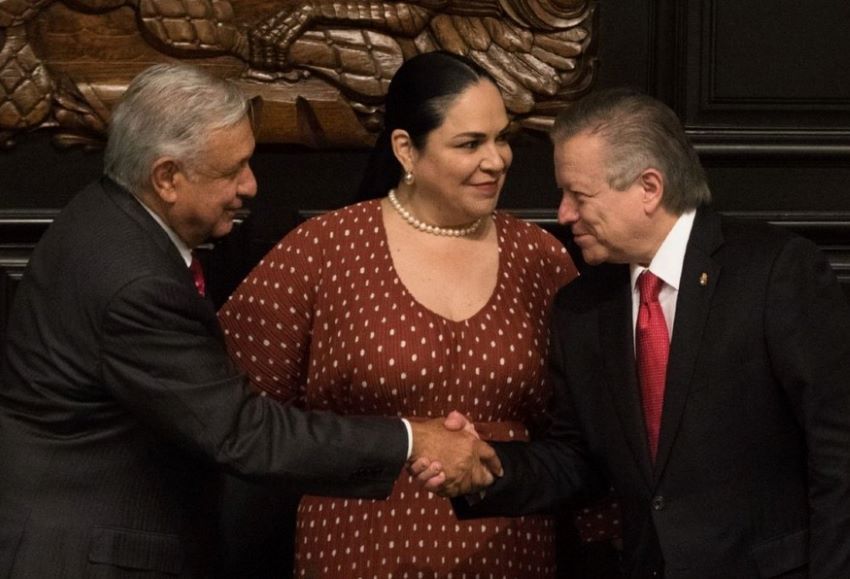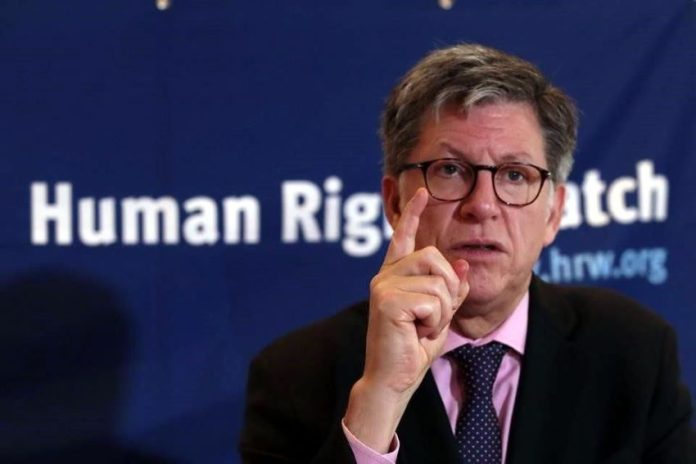The federal government’s move to extend the term of the chief justice of the Supreme Court (SCJN) is an “assault on justice,” according to the Americas director of Human Rights Watch (HRW).
José Miguel Vivanco said the reform passed by the Senate last week to extend by two years the term of Arturo Zaldívar — considered an ally of President López Obrador — violates an article of the Mexican constitution restricting the maximum term of a chief justice to four years.
The reform, which hasn’t yet passed the lower house of Congress, would allow Zaldívar to remain at the head of the SCJN for six years and leave the position after AMLO, as the president is commonly known, finishes his term.
In the first of a series of Twitter posts on the subject, Vivanco — a Chilean lawyer and Latin America expert — asserted that “AMLO is threatening judicial independence in Mexico.”
He noted that the chief justice of the Supreme Court is also one of the seven members of the Federal Judiciary Council (CJF), adding that one of the other six is chosen by the president, two are elected by the Senate and three are selected by the SCJN.

“By extending the mandate of the president of the Supreme Court,” Vivanco wrote, AMLO — “who has a majority in the Senate” and “has said he has ‘has confidence in’ Zaldívar” — is guaranteed a majority in the CJF.
“Why is it so worrying for AMLO to have an automatic majority in the [Federal Judiciary] Council? Because with four votes he can take momentous decisions, such as approving the forced withdrawal of judges,” the HRW director wrote.
“With one more vote, AMLO would have a qualified majority of five judges that would allow him to name, sanction and remove judges,” Vivanco wrote.
“In fact, not long ago AMLO tried to sanction a judge simply for ruling against him,” he added in another tweet, referring to López Obrador’s remarks that a judge who suspended the government’s new Electricity Industry Law should be investigated.
“… Do you have any doubt about this assault on justice? Listen to AMLO acknowledge his own chess move without any shame,” Vivanco concluded.
Below the post appeared a video of López Obrador endorsing the reform to extend Zaldívar’s term as chief justice and “especially” as president of the CJF.
The council Zaldívar heads is the body that can carry out the required changes to the judicial power, the president said last Friday.
He asserted on Tuesday that if the chief justice’s term is not extended, the government’s proposed changes to the judiciary — among which are Senate-approved reforms designed to eliminate corruption, nepotism and harassment in the court system — will not be carried out.
“I believe that it is very important for Chief Justice Zaldívar to continue because he is an upright, honest man with principles, and the laws that were approved to renew the judicial power need to become reality. And for that, an honorable person like the president of the court is needed,” López Obrador said at his regular news conference.
There is no other person who can lead the overhaul of the judicial system because most other Supreme Court justices were installed when corrupt former governments were in power, he said.
The president said he had received legal advice that the extension of Zaldívar’s term is not unconstitutional. He rejected any suggestion that he would seek to extend his own term as president, asserting that the extension of the chief justice’s term would not be a “prologue” to his reelection.
López Obrador reiterated that when his term as president ends, he will retire to his ranch in Palenque, Chiapas, where he intends to write a book.
“I’m going to live on my ISSSTE [State Workers Social Security Institute] pension,” he said, adding that he will also be eligible for an old-age pension.
AMLO said that he will completely withdraw from politics after he retires, explaining: “That’s why I’m working intensely [now], because I hope to fulfill my mission” to transform Mexico.
Source: El Universal (sp), Milenio (sp)
